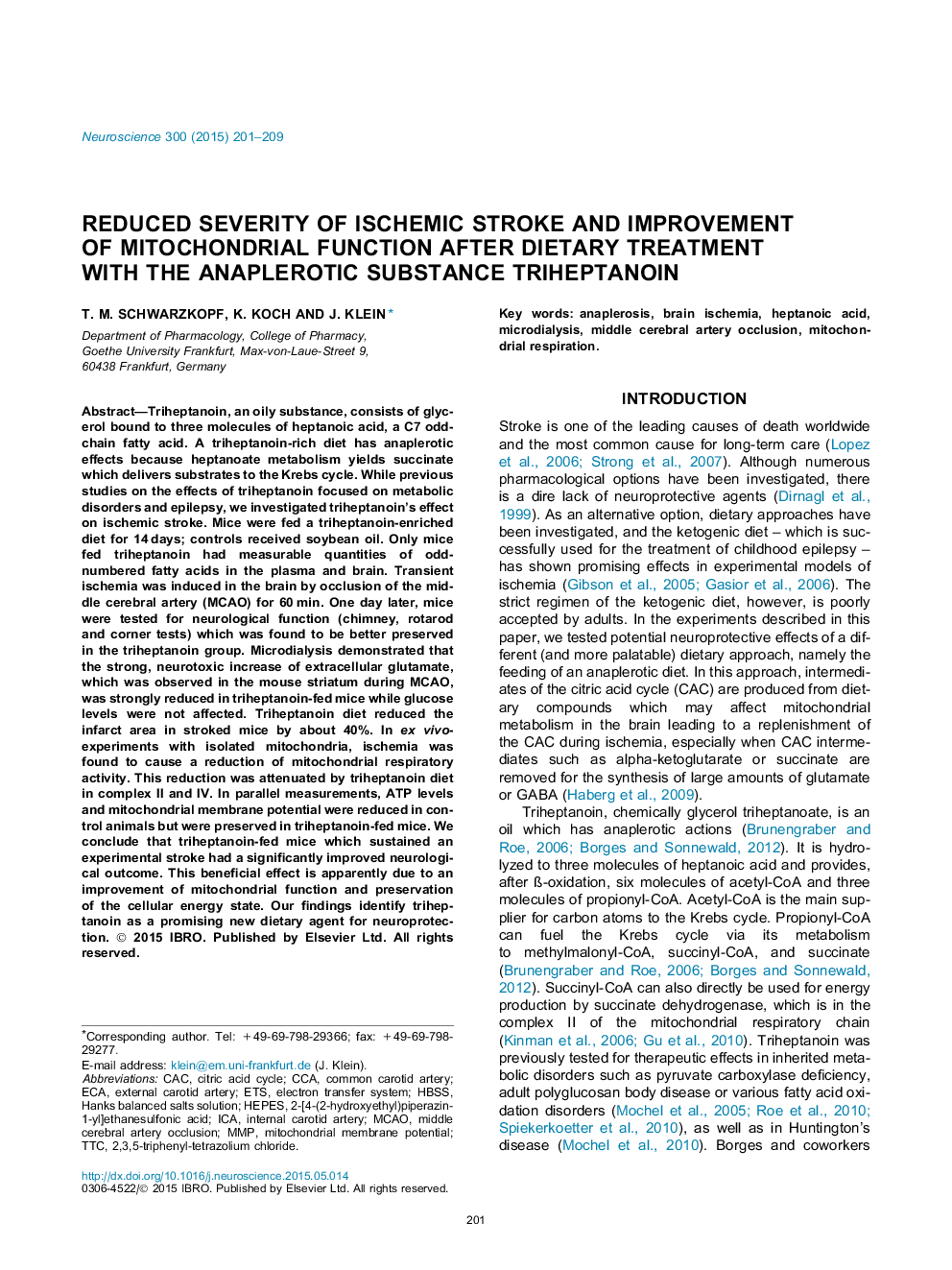| کد مقاله | کد نشریه | سال انتشار | مقاله انگلیسی | نسخه تمام متن |
|---|---|---|---|---|
| 6272006 | 1614776 | 2015 | 9 صفحه PDF | دانلود رایگان |
- Mice were fed an anaplerotic diet which was rich in triheptanoin.
- This diet improved neurological outcome after transient brain ischemia.
- Local increases in glutamate were attenuated, and infarct size was reduced.
- ATP levels were preserved, and mitochondrial function was improved.
- Triheptanoin-rich diets may have neuroprotective properties in stroke.
Triheptanoin, an oily substance, consists of glycerol bound to three molecules of heptanoic acid, a C7 odd-chain fatty acid. A triheptanoin-rich diet has anaplerotic effects because heptanoate metabolism yields succinate which delivers substrates to the Krebs cycle. While previous studies on the effects of triheptanoin focused on metabolic disorders and epilepsy, we investigated triheptanoin's effect on ischemic stroke. Mice were fed a triheptanoin-enriched diet for 14Â days; controls received soybean oil. Only mice fed triheptanoin had measurable quantities of odd-numbered fatty acids in the plasma and brain. Transient ischemia was induced in the brain by occlusion of the middle cerebral artery (MCAO) for 60Â min. One day later, mice were tested for neurological function (chimney, rotarod and corner tests) which was found to be better preserved in the triheptanoin group. Microdialysis demonstrated that the strong, neurotoxic increase of extracellular glutamate, which was observed in the mouse striatum during MCAO, was strongly reduced in triheptanoin-fed mice while glucose levels were not affected. Triheptanoin diet reduced the infarct area in stroked mice by about 40%. In ex vivo-experiments with isolated mitochondria, ischemia was found to cause a reduction of mitochondrial respiratory activity. This reduction was attenuated by triheptanoin diet in complex II and IV. In parallel measurements, ATP levels and mitochondrial membrane potential were reduced in control animals but were preserved in triheptanoin-fed mice. We conclude that triheptanoin-fed mice which sustained an experimental stroke had a significantly improved neurological outcome. This beneficial effect is apparently due to an improvement of mitochondrial function and preservation of the cellular energy state. Our findings identify triheptanoin as a promising new dietary agent for neuroprotection.
114
Journal: Neuroscience - Volume 300, 6 August 2015, Pages 201-209
